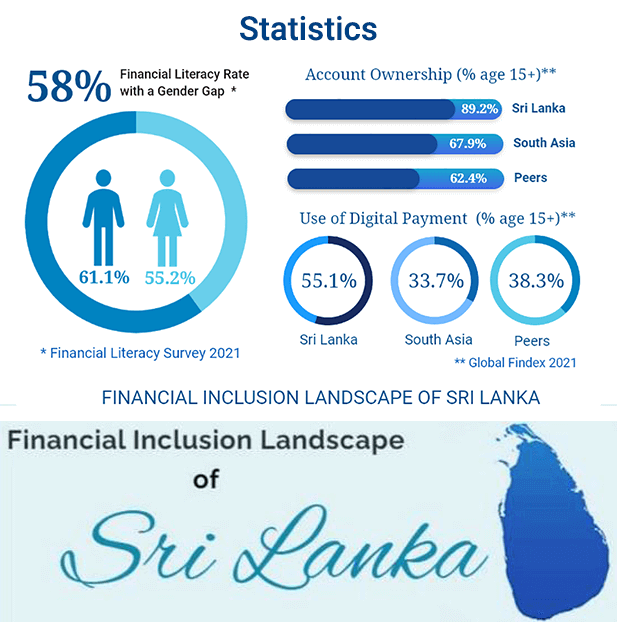The NFIS Action Plan has been set out with clarity on the roles and responsibilities for each implementing entity, which comprises 80 broad actions under 26 objectives spreading over the key pillars and cross cutting enablers.
| Focus Area | Objectives | Actions |
|---|---|---|
| Digital Finance and Payments | 08 | 20 |
| MSME Finance | 02 | 09 |
| Consumer Protection | 04 | 15 |
| Financial Literacy and Capacity Building | 05 | 19 |
| Cross Cutting Enablers | 07 | 17 |
| Total | 26 | 80 |
Pillar wise Objectives
Digital Finance and Payments
- Institutional management of the country’s digital economy policy
- Digitize government schemes and services.
- Streamline Know Your Customer (KYC) process to ensure standardization
- Develop an enabling regulatory environment.
- Support the development of the fintech ecosystem with specific emphasis on financial inclusion
- Generate more demand to expand the use of mobile and electronic means of payments.
- Enhance the supply of digital payments.
- Strengthen the development of digital infrastructure.
MSME Finance
- Build capacity of formal financial sector to scale-up lending to MSMEs and expand the range of high-quality products with a special focus on green and sustainable finance as well as vulnerable groups including women, the poor, and individuals with low educational background.
- Improve and coordinate government-supported MSME finance approaches and MSME support programs.
Consumer Protection
- Address gaps in legal mandate for regulators covering all financial services offered in Sri Lanka.
- Ensure comprehensive legal requirements for financial consumer protection across all providers, products, and services.
- Further strengthen financial consumer protection supervision.
- Enhance existing EDR mechanisms to ensure accessible, affordable, independent, well-resourced, fair, accountable, timely, and efficient channels for dispute resolution for all financial consumers.
Financial Literacy and Capacity Building
- Assess the Level of Financial Literacy of the Population and Identify Key Gaps.
- Improve the coordination of financial literacy efforts.
- Increase financial literacy among consumers, particularly vulnerable groups, including women, the poor, and individuals with low educational background.
- Increase the capacity of MSMEs
- Improve the effectiveness and efficiency of delivery channels for financial literacy.
NFIS Enablers
Enabler 1: Data
- Develop harmonized and consolidated approach to data collection.
Enabler 2: Infrastructure
- Improve the credit information system.
- Improve the secured transactions framework, especially for movables.
- Improve communications infrastructure (internet coverage and smartphone penetration).
- Operationalize a governance structure for the implementation of the NFIS.
Enabler 3: Policy Tools and an Enabling Regulatory Environment
- Finalize legal framework for data privacy and protection.
- Further encourage providers to expand services in underserved areas.







